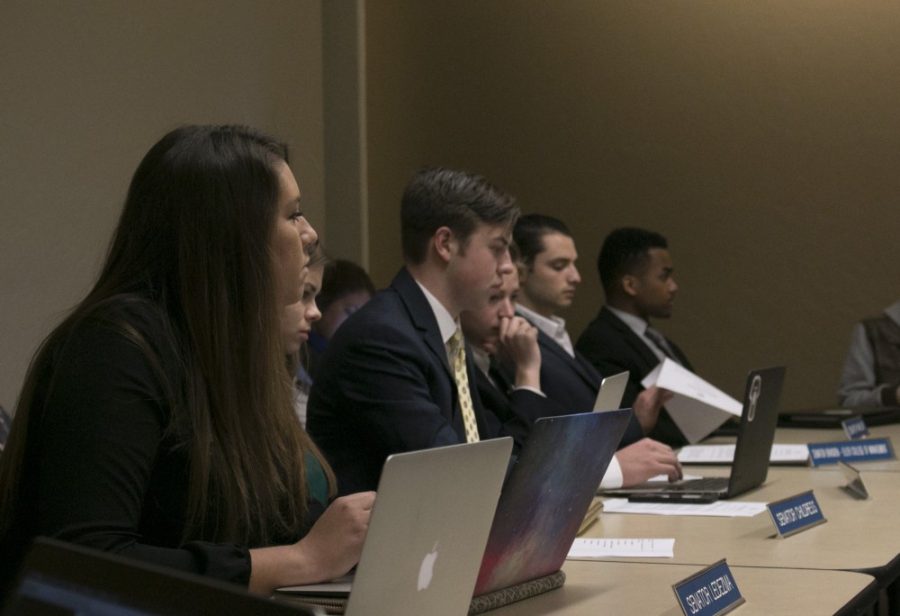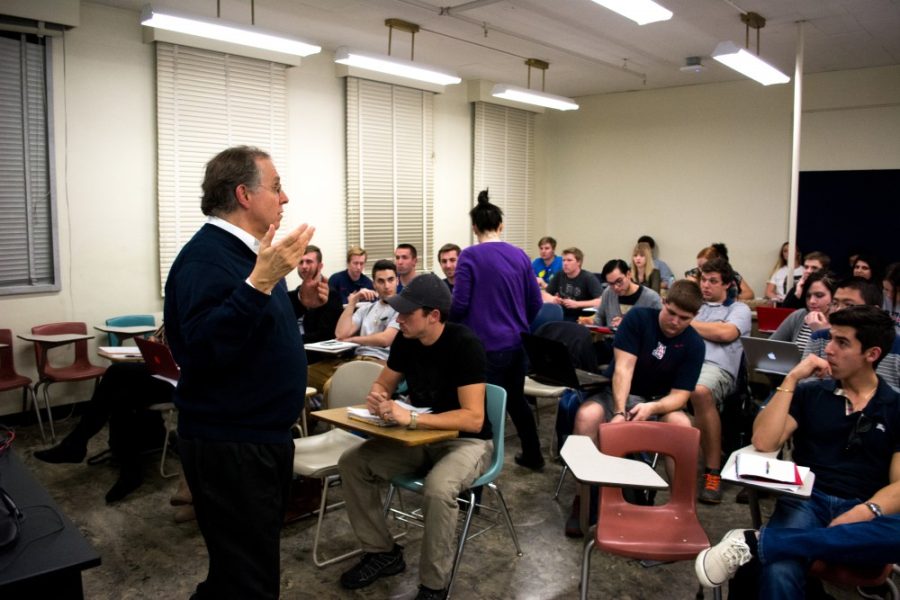Just when you thought the chaos of this election season was over, the Associated Students of the University of Arizona is about to get underway with their elections.
Candidate forms to run for an executive or ASUA senate position were due on Jan. 27. Once candidates are verified by the elections commission, campaigns will begin on Monday, Jan. 30.
ASUA is the university’s student government. The office is responsible for running clubs and services, including Spring Fling, Freshman Class Council, Bear Down Camp, Students for Sustainability and Pride Alliance.
ASUA President Michael Finnegan said this election is especially important due to the post-election world we live in.
“We have to deal with a lot more social issues than we were comfortable with under the Obama administration,”said Finnegan. “We kind of have to wake up and realize what the solution is.”
RELATED: ASUA discusses SB 1061, constituion
Those who will be elected will have to look at fees and tuition and social issues happening on campus.
“As a university, what is our stance going to be with this incoming administration and that’s for them to decide,” Finnegan said. “I think it’s going to be a really competitive election, which means a lot of issues and ideas get discussed.”
Elections Commissioner Chloé Durand is responsible for overseeing all the candidates and running the election process. She hopes to receive more candidates this year, which will hopefully make other students more aware of ASUA and encourage voting.

“I think it is important if you find an issue on campus that resonates with you, then you should vote for the candidate that will resolve it,” Durand said. “If you don’t vote, you’ll lose that opportunity to be involved with the elections process.”
For students who might not believe their vote is important, Durand is confident it will make a difference. During last year’s special election there was a tie, Durand belives every vote does count.
Elections will run differently this year due to election code changes. Students wishing to run for a senator position no longer need signatures, but the signatures are still needed for executive positions.
RELATED: Arizona Board of Regents oppose bill limiting tuition increases
The elections commission altered the code to include Title IX, as well as prohibiting defamation. The idea for changing the elections code was to make it more inclusive for all students to run for an ASUA position.
“We do want every seat filled,” Durand said. “We want to ensure that each college is represented in ASUA because the senate does have a lot of power.”
A major revision in the elections code was how to submit a complaint. Previously, if a student wished to express a complaint, he or she would pick up a brightly colored paper in the ASUA office. The problem was that other students would see who was submitting these forms, Durand said. Now complaints will be submitted anonymously online.

Finnegan believes ASUA will have better representation and better college seats than before because of Durand’s work.
“I might sound like [former] President Obama here, but no matter who wins, my job becomes 150 percent invested in their success,” Finnegan said. “I’m invested in the success of the next student body president no matter who he or she is or they are. I think their success is all of our success and I’ll do whatever I can to transition.”
Primary elections will run from Feb. 14-15. The Senate question and answer session and the administrative vice president and executive vice president debates are on Feb. 22 . Presidential debates are on Feb. 27, and general election voting will take place from Feb. 28 to March 1.
Follow Elizabeth O’Connell on Twitter.









